Extreme travel situations have sometimes forced hunger on me. While I don’t know about tasting blood as an outcome of absolute, continued hunger as some say, what I do know is that it makes one angry at first and then desperate. Desperation can be dangerous – it even snaps the will to live in some. So, in a way, I knew why Rama Rajesh was flooring it one late February morning around Varkala town. He zipped from the railway station to the government hospital, from the bus stand to a beehive flock of footpath vendors under a tree. He stopped in many places in between – not haphazard or hasty last moment calls but fixed designated stops as I learnt later.
In all these places, groups of people, frail and falling, limbless and sightless, in torn or patchworked clothes waited. His car which I pursued, a white Wagon R, with smooth, broad yellow strokes around the corners, could be picked out from a distance. Even before the car came to a complete stop, they would mill around, hands reaching out for the parcelled comestibles. Sometimes necks would crane through the open window to smile at Rama Rajesh and the occasional volunteer who accompanied him. Some would snatch their quotas and walk away in a huff to their unmanned cobbler or begging stations. Still some would walk over to the driver side and berate Rama Rajesh for being late. That morning there was a block on the road following a violent spat between the drivers of a car and a private bus which veered in too close while overtaking nicking the fender.
“Traffic,” Rama Rajesh deferentially averred and the old man walked away giving one last, hard stare. Commuting to the next stop, my tiny rented Yamaha Cygnus Ray Z, hit a juddering 80 kmph.
For the past 14 years Rama Rajesh, through his one-man charitable organisation Anna Kshetra (‘Anna’ means ‘food’ and ‘Kshetra’ is ‘place’), has been feeding between 70 – 80 people on an average every day. The money for this comes from the income of the guesthouse he runs near the Papanasam beach in Varkala.
“There have been many occasions when the money wasn’t enough. Somebody would turn up just like that and say they would like to sponsor food that day because it was a birthday or some anniversary.”
Then, miracles being premium, he runs mostly on the credit extended by around eight kitchens he employs depending on finances and numbers. The kitchen we went to that morning, the one he uses mostly, was the vegetarian refreshment stall at the railway station. Collecting 30 packets readied for the platform run, he and some volunteers strode briskly about distributing it among the destitute gammers, beggars and other homeless regulars. It is not just a ‘give and go’ but warm enquiries are made after health and safety issues too. Whereabouts of missing regulars are made: a long silence means death. That morning some six people were missing from the railway platform. “Sometimes families trace their Alzheimer-affected members and take them back home. Or there are occasional governmental drives where the unsound of mind are bundled into a van every few months and taken away to be tranquilised the rest of their lives.”
“But what most of them are really curious to know is the menu for the morning,” Rama Rajesh says with a toothy chuckle. “It is usually upma, puri or appam and curry. If its puri, some ask for a second helping which lands me in a spot.” When he laughs, Rama Rajesh’s eyes sparkle, you can see it. This is an outcome of malice-free mirth, I have noticed it before in some very good ones.
“My goal is to be able to feed 200 people every day,” he had told me a few days earlier while we chatted sitting at the ‘reception’ of his guesthouse. The ‘reception’ being a mat spread over the veranda of the ground floor with newspaper and other publications stacked up at one end. The check-in ledger lay about with entries made on monies received. As he is out at least half the day, Rama Rajesh loses out on a lot of walk-in business. Not everyone bothers to – or has a mobile phone – to call the number given there.
“Some of my long-term guests fill in as receptionists sometimes,” he said. “Any help is good as I don’t have a spare hand.”
“Sometimes some guests have even very surreptitiously shown themselves out in my absence.” Sparkle-eye guffaw.
The integrity and benevolence of the have-nots, eulogised by Steinbeck, is a recurring theme in my conversation with Rama Rajesh. The handicapped who make more money do not take the food Rama Rajesh brings them. Instead, they ask him to give it to the aged, fully-appendaged ones in their midst.
“In Kerala we say ‘god gave you hands and legs, use them,’ without bothering to find whether they are inflicted by some terminal illness.”
“In another instance a very old man, quite fair and dressed in crisp dhotis and shirts all the time, used to take food from me. Somebody told me he was the friend of yesteryear actor Prem Nazir and used to own many fishing vessels. So I requested him to desist from taking the parcel as there were many in dire straits. The old man did as he was told and I didn’t see him for several days. A week or so later a maulavi of the local mosque told me that if anyone deserves to be fed in the area it was this old man – he had lost everything he had, lived in a shanty, with nobody to take care of him and the only thing going for him were the pressed clothes.”
In Kerala deceiving through appearance is a sub culture in itself; Rama Rajesh’s eyes welled up when he narrated this.
“I stopped judging people, whoever extends their hands I give now.”
From the railway station, we went to another of his kitchens. More parcels were collected and volunteers Sabiena and Franz Schuman, mother and son from Germany, handed over each of these packets to patients at the local government hospital. The ‘namaste’ that followed stunned many at first before waving a benediction their way with gnarled arms. Joy lit up faces otherwise tainted by a sickly pallor. In typical Kerala style, some traced semi arcs with their heads and responded with two ‘namastes’ and almost immediately pried open the paper wrapping.
That day the funds were limited to 80 packets. Afterwards, we all sat around having chai as the sun peaked. Franz explained to me what he did as an educator. Rama Rajesh told me about his deceased parents who would have been very dejected to see their son unmarried and childless even at such an advanced age.
“They were always worried about my charitable inclinations which they hoped a wife would cure me of.” Laughter. Having realised that he will not be able to spare any time for family, he has now centred his atma on fulfilling what he calls a ‘persistent, inner voice, almost physical in nature’ which has been bothering him these days. The voice prods him awake at night and makes him relapse into long silences in the midst of conversations.
“It tells me that I should feed one thousand people over the course of a single day,” he said. “I will have to start from Varkala, go all the way to Kanyakumari, and feed one thousand hungry people in a morning to evening drive.” The homeless and penniless pilgrims congregate in Kanyakumari who too will be fed. Hotels and other private homes along the way – people he know – will function as kitchens. The meals will comprise of breakfast, lunch and an early dinner.
“1,000 meals in one day,” I said. “Sounds like a record feat.”
“1,000 happy people in one day,” he replied. “And it’s an inner feat. Record or not.”
I smiled and looked at Rama Rajesh. He didn’t smile but sat very still, lost.
Must be the voice.
Support Anna Kshetra
You can sponsor 70 – 80 breakfast packets for Rs 2000; Rs 3000 for a similar number of lunch packets. Call Rama Rajesh at +91 9895334516



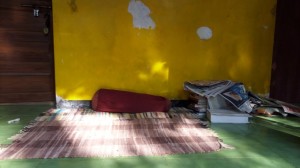
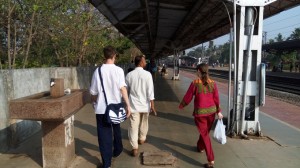
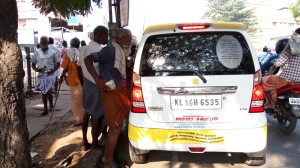
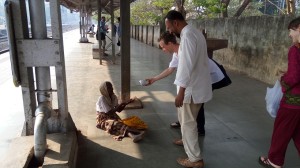
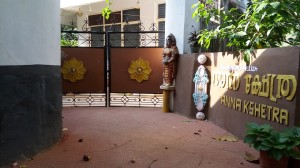
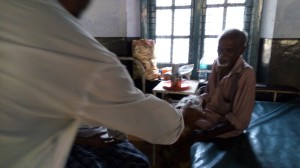
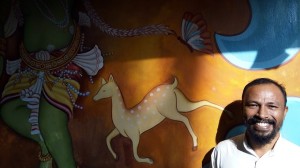


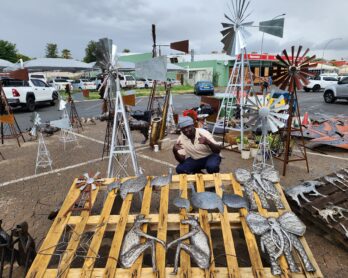




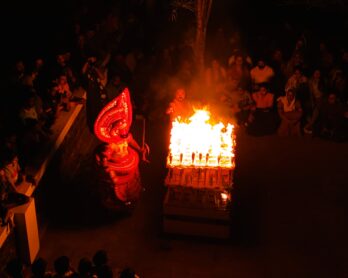
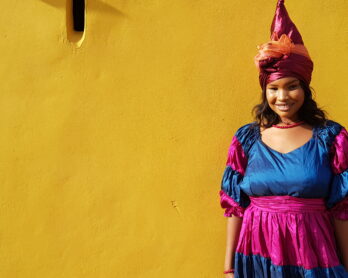
Thank your sharing ME also facing like rama rajesh. Peoples are very different mind set don’t understand and don’t reach them
You are welcome. Just doing my little bit.